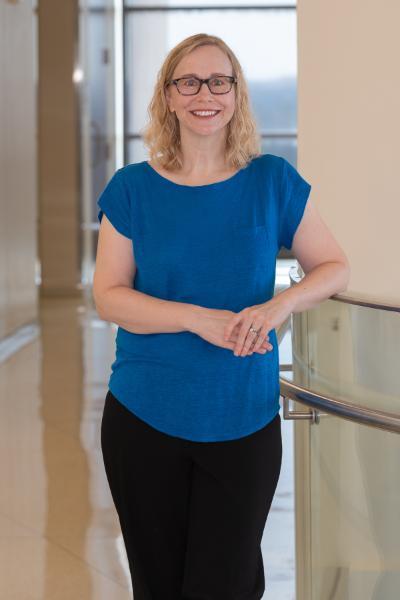Kimberly Pedram, M.D.
Educational Innovation/Educational Research Award
 Associate Professor of Internal Medicine
Associate Professor of Internal Medicine
Department: Internal Medicine
Kimberly Pedram, M.D., joined faculty at VCU School of Medicine in 2007, after completing medical school and residency at VCU. In the ensuing years, she mentored 11 students, advised/coached more than 50 others, and precepted multiple medical students, pre-medical students and nurse practitioner students. Dr. Pedram, who is a member of seven professional societies, has extensive didactic and clinical teaching experience and has two papers published in peer-reviewed journals as well as eight published abstracts or proceedings. She has been invited to present numerous times, both internally at VCU and nationally. Dr. Pedram has developed more than 40 educational products, including learning modules, documentation, small group learning guides, and physical examination checklists. She was named Outstanding Division Director in Pre-Clinical Longitudinal Courses in 2015 by a vote of pre-clinical medical students and was selected for the Dr. J. David Markham Award for Excellence in Teaching in 2018 and the VCU Department of Internal Medicine (DOIM) Excellence as Clinical Educator Award in 2019. Additionally, she was honored as a Fellow of the American College of Physicians in 2019 and as a Senior Fellow in Hospital Medicine by The Society of Hospital Medicine in 2020.
In their nomination letter of Dr. Pedram for the Educational Innovation/Educational Research Award, Drs. Patricia Sime, Curtis Sessler, Christian Barrett, and Rebecca Forrest described Dr. Pedram as “a leader and role model in teaching the practice of clinical medicine.” Such passion led to her selection as the Course Director of the Practice of Clinical Medicine (PCM) and Associate Chair for Education in the Division of Hospital Medicine within the DOIM. Alice Wong, M.D., who works alongside Dr. Pedram, stated that Dr. Pedram spearheaded “a revamp” of the PCM course to limit passive learning and incorporate “independent study learning modules supplemented with learning assessments to promote active learning.” Dr. Pedram’s learner evaluations from housestaff and students in the PCM course were overwhelmingly positive.
Michelle Brooks, M.D., commended Dr. Pedram’s innovative peer observation/feedback program for ward attendings that changed the culture of their hospitalist group to one of collaboration in enhancing their clinical teaching skills. Ashley Hadjis, M.D., a former student, noted, “It is one thing to be a teacher, and Dr. Pedram is an exemplary one, but it is another to be an educator. More specifically, Dr. Pedram has mastered creating curriculum and innovating to improve the educational experience for students.”
Another former student explained that following a reduction in PCM preceptorship time, Dr. Pedram created “an entire series of workshops for students to practice the different components of physical exam skills on standardized patients in collaboration with the Center for Human Simulation & Patient Safety.” She also created workshops for practicing communication skills in sensitive situations (e.g., delivering bad news, interviewing for intimate partner violence). Yet another commented that the best educators are those that effectively seek out and implement learner feedback, stating, “Nobody embodies this more than Dr. Pedram,” who was “constantly looking” for ways to improve and incorporate new material to help students adapt to the rapidly changing field of medicine.
A common theme emerged in the support letters for Dr. Pedram: she created a “welcoming and engaging learning environment,” and her approach to teaching and mentoring was “the perfect balance of autonomy and supervision.” Students expressed appreciation for how she gave them time and space to develop their own independent care plans for patients but was available for oversight and support when needed. More than one expressed that Dr. Pedram was the type of educator they hoped to become one day.